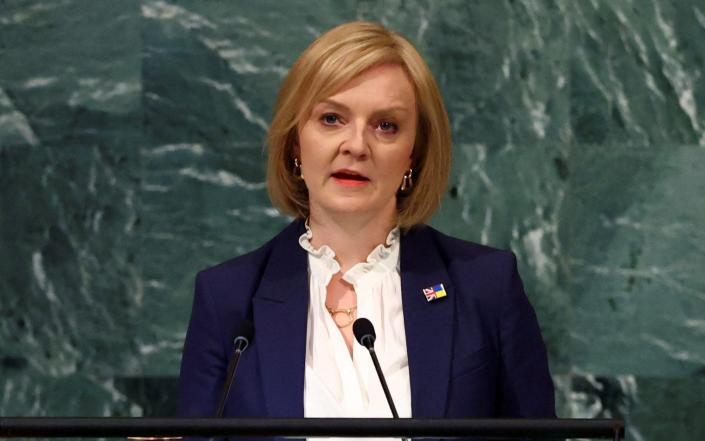
A Brexit deal looks more likely than not after Britain set a six-month deadline for negotiations over the Northern Ireland Protocol.
The one thing Brexit deadlines have in common is that they are almost all missed.
A deal to cut Irish Sea border checks, however, can be struck by the 25th anniversary of the Good Friday Agreement in April.
By setting the deadline, Liz Truss has taken the threat of the Northern Ireland Protocol Bill off the table for now. The prospect of tearing up the treaty with the legislation enraged the EU, which said it would break international law.
The rhetoric from both sides has softened. London and Dublin have talked of a “landing zone” for the agreement.
That lies somewhere between reducing checks enough to satisfy Britain, while keeping enough safeguards to reassure Brussels that nothing not meeting EU standards crosses from Northern Ireland into Ireland.
Both the UK and EU have called for an “express lane”, where goods deemed not at risk of crossing into the Single Market in Ireland can avoid checks.
The EU has offered a reduction in checks in exchange for the UK sharing market surveillance data on British goods entering Northern Ireland.
A British IT system monitoring the cross-border trade is already built but will need some tweaks to satisfy Brussels.
Truss ruling out UK-US trade deal helps
Existing grace periods exempting chilled meat products, such as sausages, supermarket supplies and parcels from border checks can be made permanent.
The EU has already changed its laws to ensure that Northern Ireland can continue to obtain cheaper generic drugs from the NHS.
Liz Truss ruling out a UK-US trade deal in the near future also helps.
Brussels had concerns over US produce, which didn’t meet EU standards, flooding into the UK and leaking across the Irish border from Northern Ireland into member state Ireland.
The UK might now be willing to consider a deal to align UK and EU animal and plant health standards to each other, which would allow border checks to be cut by roughly 80 per cent.
Such a “Swiss-style” SPS agreement was off the cards while the US trade deal was a prospect because the UK would have to diverge from EU rules to allow some US agricultural imports.
The Protocol was a footnote in the EU’s official readout of talks between Liz Truss and Ursula von der Leyen, the European Commission president, on the margins of the UN General Assembly in New York.


This fits with an established Brussels strategy of de-dramatisation to win space for negotiators ahead of talks. When the Commission and Downing Street go totally silent, then negotiations are in deadly earnest.
Negotiations will still be difficult and there will be bumps in the road. Political will and compromises will be needed from both sides to make the April deadline. As is traditional, a deal will probably only be done at the last minute.
The clock is ticking again in Brexit but it looks like it is already too late for Northern Ireland.
The DUP refused to enter into power-sharing with Sinn Fein after its first ever victory in Northern Ireland Assembly elections in May until the Protocol is ripped up or replaced.
The caretaker executive must be replaced by October 28 or fresh elections will be triggered.
The deadline of next April for the Protocol deal suggests that Northern Ireland will face its second elections in eight months this Christmas.
Assuming the deal is good enough for the DUP, Stormont could be up and running in April after 14 months in cold storage. There has been no fully functioning devolved government since February, when the DUP pulled out of Stormont in protest over the Protocol.
During that time its politicians, on full pay, have been unable to use devolved powers to tackle the longest NHS waiting lists in the UK or the cost of living crisis.
As Liz Truss herself might say – that is a disgrace.




